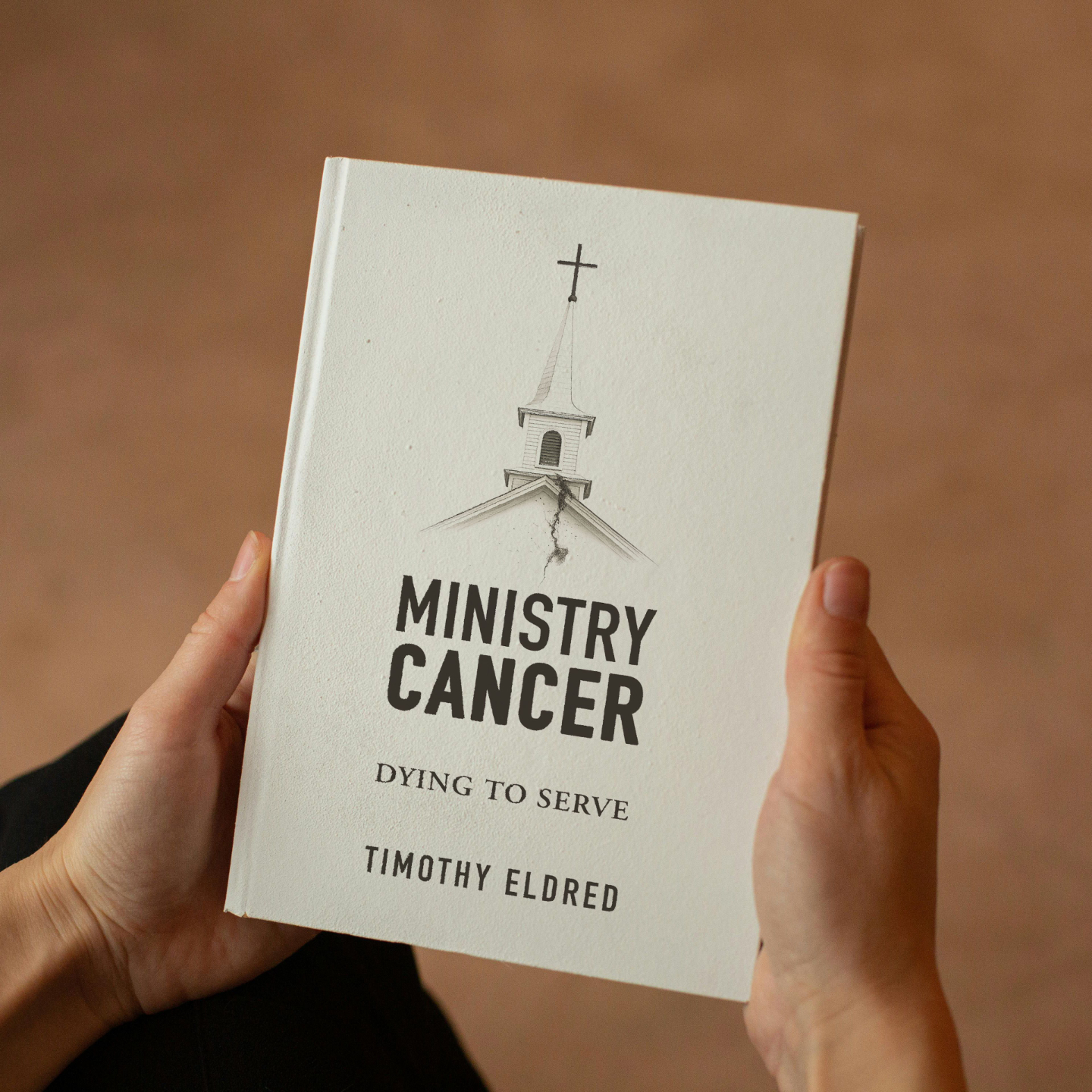Who Do You Think You Are?

Redefine Your Identity for a Healthier, More Authentic Life
As pastors, it's easy to lose sight of who we are beneath our role. The sermons we preach, the meetings we lead, the lives we touch—these become woven into the fabric of our identity. But somewhere along the way, the lines between our calling and our identity blur, and we start to believe that "pastor" is who we are.
But here's the truth: being a pastor is what you do, not who you are.
This is a critical distinction—because if your entire identity is wrapped up in being a pastor, you’ll miss the deeper, fuller story of who you’re meant to be. And worse yet, if you fail at something in your role, it can feel like you have failed—not just a task or responsibility. So I want to help you step back and ask yourself a question that’s both simple and profound: Who do you think you are?
The Story You Tell Yourself
We all have a narrative that plays in the background of our lives, shaping the decisions we make and the path we follow. For me, the struggle became ingrained into my life when I found myself traveling 150 days a year speaking across the world. My identity was wrapped up in my stage presence—I got lost on the stage seeking the approval and applause of an audience. But I know it can be the same behind the pulpit in your congregation and the need we feel to please, produce, or perform to meet the expectations of others.
For many of us, that story might sound something like this: I’m a pastor. I need to keep it all together. I need to be strong for my congregation. I need to always have the right answer.
But here’s the reality: that story is incomplete. It’s like reading the same chapter of a book over and over again without ever flipping the page. There’s so much more to your story if you’re willing to turn the page and wade into a new—even unknown—aspect of your unwritten story.
The problem is, that when you let your role as a pastor define you, you limit your potential and your growth. You end up trying to live up to an impossible standard. And you miss out on the opportunity to become who you’re truly meant to be—who God designed you to be holistically—apart from the roles you play.
A Better Story with a Better Ending
What if you could tell yourself a different story—a better story? One where you’re not limited by the title of “pastor” but are empowered by the person you are becoming?
You see, the more we focus on who we want to become, the better we plan our lives around that vision. The story you tell yourself about who you are—and who you’re becoming—directly shapes the life you’re building.
But here's the catch: if you don’t consciously choose the story, it will be chosen for you. A couple of nights ago at a cohort retreat, I explained it to pastors this way—you get to define the "promised land." God gives us that freedom. So, how do you start telling yourself a better story? Here are some practical steps to get you started:
1. Identify Who You Want to Become
The first step is to get clear on the person you want to become. Think beyond your role as a pastor. Ask yourself:
- What kind of person do I want to be in 5, 10, or 20 years?
- What character traits do I want to develop?
- What are my core values that go beyond ministry?
- Who do I want to be in my relationships with my family, friends, and even myself?
- What legacy do I want to leave in every aspect of my life?
The Bible encourages us to focus on our God-given identity, reminding us that we are new creations in Christ: "Therefore, if anyone is in Christ, the new creation has come: The old has gone, the new is here!" — 2 Corinthians 5:17 (NIV)
Take a few minutes to journal these thoughts. Don’t overthink it. Just let your mind explore the possibilities of who you could become—not just who you are right now.
2. Recognize Who You Don’t Want to Be Anymore
Equally important is identifying the parts of yourself that you’re ready to let go of. This could be unhealthy habits, limiting beliefs, or even aspects of your identity that no longer serve you. Here’s where to start:
- What habits or behaviors are keeping me stuck?
- What fears are holding me back from becoming the person I want to be?
- Where have I let my role as a pastor define me too much?
Scripture calls us to put off our old selves and to embrace the transformation that comes from renewing our minds: "You were taught, with regard to your former way of life, to put off your old self, which is being corrupted by its deceitful desires; to be made new in the attitude of your minds; and to put on the new self, created to be like God in true righteousness and holiness." — Ephesians 4:22-24 (NIV)
This process is uncomfortable because it forces you to confront your weaknesses. But it’s the first step in replacing unhealthy patterns with healthier ones.
3. Set Clear, Actionable Goals
Now that you’ve identified who you want to become—and who you no longer want to be—it’s time to set goals to bridge the gap. Your goals should be realistic and actionable. Here are some examples:
-
Physical Health: Set a goal to take care of your body, which may have been neglected while you focused on your congregation. Commit to a weekly exercise routine or healthy eating plan.
-
Emotional Health: Prioritize mental wellness. This could mean setting boundaries to protect your time, finding a therapist or mentor, or even starting a daily mindfulness practice.
-
Spiritual Growth: Dig deeper into your relationship with God outside of sermon preparation. Set a goal for personal devotional time that’s just for you—not for your next message.
4. Take Inventory of Your Relationships
Your identity is not just about who you are when you’re alone, but also how you show up in your relationships. Ask yourself:
- Am I investing in the relationships that matter most—my family and my close friends?
- Have I been relying too much on relationships within the church for validation and support while neglecting personal friendships?
- Who in my life do I feel safe being vulnerable with—no masks—no pretending or performing?
Make a conscious effort to build and invest in relationships where you can be your authentic self.
5. Find Someone You Can Be Completely Vulnerable With
Let’s be real: pastors often fight their internal battles alone. But you can’t win those battles on your own. You need someone—a friend, a coach, or a peer group—who can listen to the real you without judgment. Someone who can hear your doubts, fears, and struggles and walk with you through them.
This is critical because vulnerability is where growth begins. When you keep everything bottled up, it festers. When you let it out, you create space for healing and growth.
Take action today: find someone you trust and start a conversation. If you don’t have anyone in your immediate circle, seek out a mentor or counselor who understands the unique challenges of pastoral life.
6. Create Boundaries to Protect Your Identity
One of the biggest challenges pastors face is the lack of boundaries between their role and their identity. The work never ends, the needs never stop, and the pressure to always be "on" can be overwhelming.
But to preserve your identity, you need to create clear boundaries between your work and your personal life. This might look like:
- Setting specific work hours and sticking to them.
- Scheduling regular time off—both weekly Sabbaths, longer vacations, or sabbaticals—to recharge.
- Saying “no” to tasks or requests that don’t align with your goals or values. (BTW: If you don't have a personal mission statement to keep you focused, you'll struggle to say no.)
Boundaries aren’t about being selfish—they’re about preserving your well-being so you can serve others from a place of health and wellness.
7. Embrace the Process of Becoming
Finally, remember that becoming the person you want to be is a process. It won’t happen overnight, and it’s not about perfection—it’s about progress.
Every small step you take—whether it’s setting boundaries, being vulnerable with someone, or letting go of an unhealthy habit—is a step toward becoming the person you’re meant to be. Celebrate the small victories along the way. And give yourself grace when things don’t go perfectly.
So, who do you think you are? And more importantly, who do you want to become?
The answer to those questions will shape your life—and your ministry—more than any title, position, or role ever will. You are more than just a pastor. You are a person with a unique story, a purpose, and a future that’s still unfolding.
But it’s up to you to write that story. You can keep living in the version that says you have to do it all, be it all, and hold it all together. Or you can choose to tell yourself a better story with a better ending. One where you’re not just surviving in ministry but thriving in life.
Take the first step today. Define who you want to become. Let go of who you no longer want to be. ◼︎
If you found this article helpful and want them in your inbox, sign up here.
We’ll send you each article plus updates from The Authentic Pastor that cut through the noise. No spam, just the good stuff—you can unsubscribe anytime.




